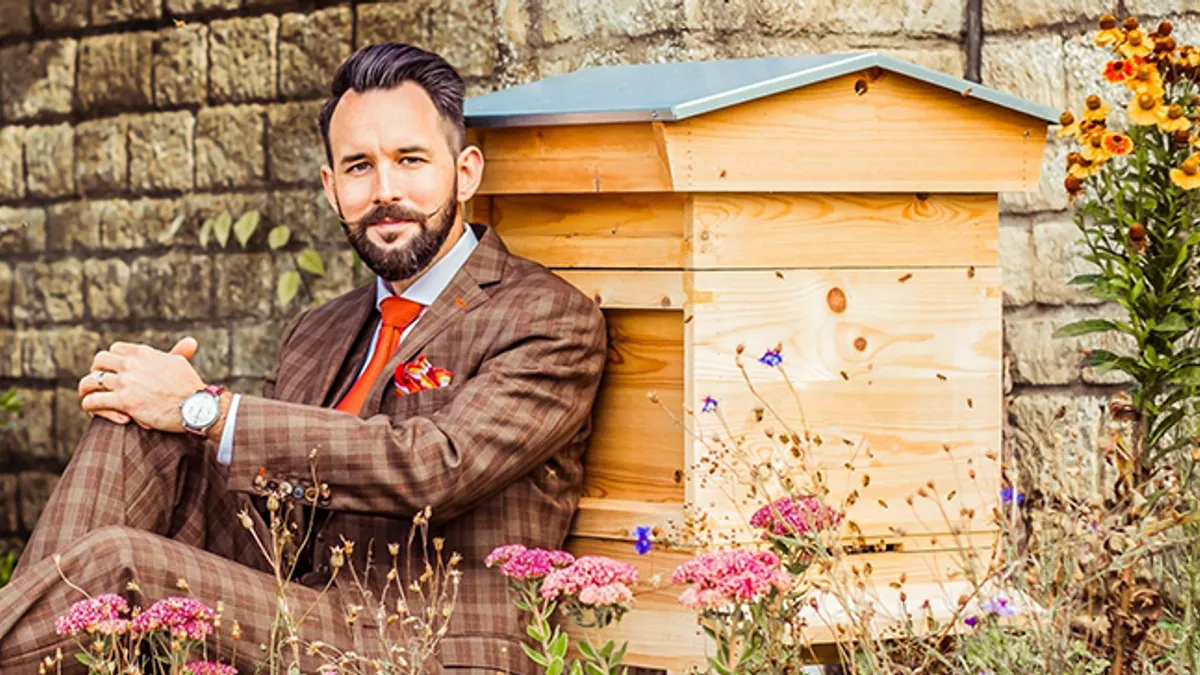Jez Rose is a man of many successes. He’s a broadcaster, award-winning writer, speaker, and host, and he lives on the world's first certified carbon neutral honey farm, helping to reverse Britain's honeybee decline.
In anticipation of his keynote for Perspectives 2020, we connected with Jez to talk about topics ranging from vulnerability and authenticity, to being proactive, human, and connected to nature in the workplace.
Here are some key highlights and takeaways from the interview.
The power of vulnerability and collaboration
I've spent a lot of time in 15 years working with senior leadership teams and at the board level… and one of the things I think I'm a bit more intrinsically aware of now that resonates much deeper is the need for authenticity and vulnerability. I think this whole global situation has demonstrated just how vulnerable we are and just how much we need connection with people.
There's an old maxim in healthcare, which is: "Patients don't need to know how much you know, but they need to know how much you care." And I think there's a really interesting takeaway, in that vulnerability is about being human.
It doesn't make you any less of a good person; it doesn't make you any less competent at your job. In fact, if anything, it makes you better at both of those things, because you expose yourself to the fact you’re just human. To be able to hold up your hands and say, "I don't know, I don't have the answer, but together, let's find the answer” is a very powerful way of moving groups of people forward.
Why we benefit from nature in the workplace
We know that, for example, minimal interactions with nature change us. You can have a potted plant on your desk, and the presence of a plant on your desk increases happiness and efficiency by as much as 15%, and those people also score happier and enjoy their immediate working environment.
The greater the void between our connection with nature, the more unhappy and the less effective we are as human beings.
Even seeing pictures of nature or having a potted plant on your desk, even in the most technical job involving a computer all day, will make you happier and more efficient, and you'll enjoy your immediate working environment simply by having a connection with nature.
The importance of being intentional in your work
There are two questions I encourage everybody to ask themselves, both at home and at work, and it's a two-step process. The first question is, "What are we doing?" And the second is, "Why are we doing it?" Because it offers you immediate recognition, to just take a moment to pause.
The "what" is very important, but the "why" is fundamentally important because that's what drives all human behavior. So why we're doing what we're doing is very important.
Being proactive, rather than reactive
No behavior just happens. Every behavior is caused; it happens for a reason. And those organizations and individuals that seem to achieve really remarkable things are the people who don't wait for behaviors to happen and then react; those are the people who are proactive. They say, "Okay what's the desirable consequence? What's the end result we're looking for? Now, how do we influence the right behaviors to achieve the right consequence?"
And it sounds like a relatively complex construct, but it's just exactly what we do right now, but the other way around. Most people kind of start at the beginning, step by step by step, and end up with a behavior; they end up having to manage a consequence.
But what I'm saying is, let's look at it the other way around, long-term. What do we want to achieve now? Then work our way backwards, one step at the time, to where we are right now, so we know how we can influence behavior to create something more extraordinary.
Want to hear more from Jez Rose?
If you’d like to hear more from Jez, listen to our full podcast interview on the Perspectives 2020 homepage. And if you’d like to tune into his upcoming keynote speech on May 13, register for Perspectives 2020 for a 24-hour digital learning experience that includes Jez’s and other keynotes, debates, courses, and more—all for free!






